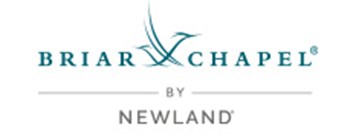
23 April . 2010
The Importance of Environmental Stewardship: An Educator's Perspective
By Sonja Younger
Science Teacher, Woods Charter School
Along with the Celebrity Chef Charity Event held on April 18th, we were excited to raise awareness around living sustainably with the local students from Woods Charter School. Today we are talking with science teacher, Ms. Sonja Younger of Woods Charter School about how easily she incorporates green and sustainable learning into her core curriculum. And more specifically, her Earth Day project for 7th grade students whom were recognized during the April 18th festivities.
Q: How do you encourage or teach your students the importance of sustainable living or environmental stewardship
A: Over the years I have chosen to focus on one pervasive issue; beef production. Now, being a good German, I love to eat beef. However, one cannot deny the effects of beef production on our soil and water supplies and the consumption of beef on human health. Beef consumption easily demonstrates basic ecological concepts that all citizens should know. Beef consumption applies abstract energy concepts to a very real, daily behavior. As a zealous omnivore, I share with students why I have chosen to severely limit my beef intake. When I do eat beef, I eat a wonderful cut, and I eat it quite rare. Yum! I currently eat beef once or twice a month. If I were truly disciplined, I would not eat it at all. I share this struggle with my students as well. As they study the environmental impact of beef consumption they easily correlate the choice to consume beef with other unsustainable choices. I have found this approach to be meaningful and effective in getting students to reflect on their life choices as a whole. It clearly empowers them.
Q: How was the "Veggie Fest" project developed and was it well received / easy to implement with the students
A: I developed the Veggie Fest seventeen years ago when I was teaching an elective environmental science course in Acton, MA. This is my first attempt to introduce it to middle school students. I found them a bit confused at first as to why we were creating recipes that were free of animal products. I had to keep clarifying that I was not a vegetarian. After learning about trophic levels, bio-magnification, water supplies and soil erosion, I think they began to better understand my intention. If they could find nine meals to add to their usual repertoire, they could substantially reduce their footprint on earth. It's easy and well within their power to do so. Many students feel so helpless when they hear about environmental problems. I observed a growth in their feelings of responsibility and empowerment. I think they were surprised at how hard it was for them to break away from the traditional American meal. Their entry had to be something they would really eat. They struggled to find flavor without animal fat and, like most American kids, spices never occurred to them. Spaghetti and red sauce was the most common idea, but they soon discovered that this was not nutritionally complete. The project had them more carefully evaluate what it is their bodies need from food and how they could meet this need in a manner that does not involved animal production. It also resulted in the exploration of how other cultures eat.
Q: What have you learned from your students about sustainability and “going green”
A: I think that teens are thoroughly underestimated. If anyone truly wants to change the world, start with teens. They are so open to new ideas. They do not cling to life-long habits or dogmas. They are idealistic and blossom when their idealism is given an opportunity to thrive. Of course, the joy on a young child's face when they learn something new is an amazing thing, but the energy of an inspired teen knows few limits. They take inspiration directly into the adult world and create real change. I see so little investment into the personal growth of teens, yet I see it as the most fertile soil to till.
Q: As you may know, this is the 40th anniversary of Earth Day. In celebration of this day, can you share what things you do either in your classroom/school or at home to “go green”
A: Personally, I am trying to consume less in every way – fuel and electricity, for example, among other things. I have spent the last several years purging my belongings. I no longer need an attic, a basement or a garage. If I don't use it, I don't need it. If I have lived without it, why would I need it now I must admit I do not do this for some kind of esoteric 'green' agenda. I think is good for me. It clarifies for me what is important in my life and what is not.
Thanks Ms. Younger, we enjoyed following the progress as as you implemented this project in your classroom and certainly appreciated all of the creative student entries!
We hope this post has brought yet another perspective on the various ways you can incorporate sustainability into your everyday life - and that the awareness around the 40th Anniversary of Earth Day has encouraged you to adopt or incorporate a new sustainabe practice. Let us know what you are doing!
*The thoughts and opinions of guest bloggers do not necessarily reflect the opinions of Newland Communities or Briar Chapel.
